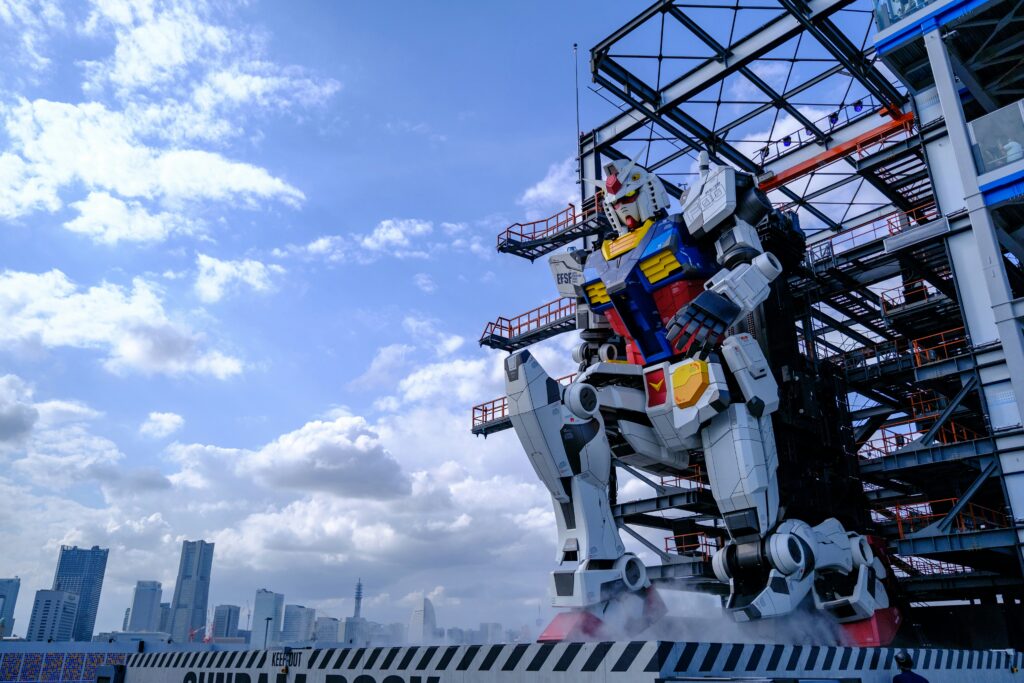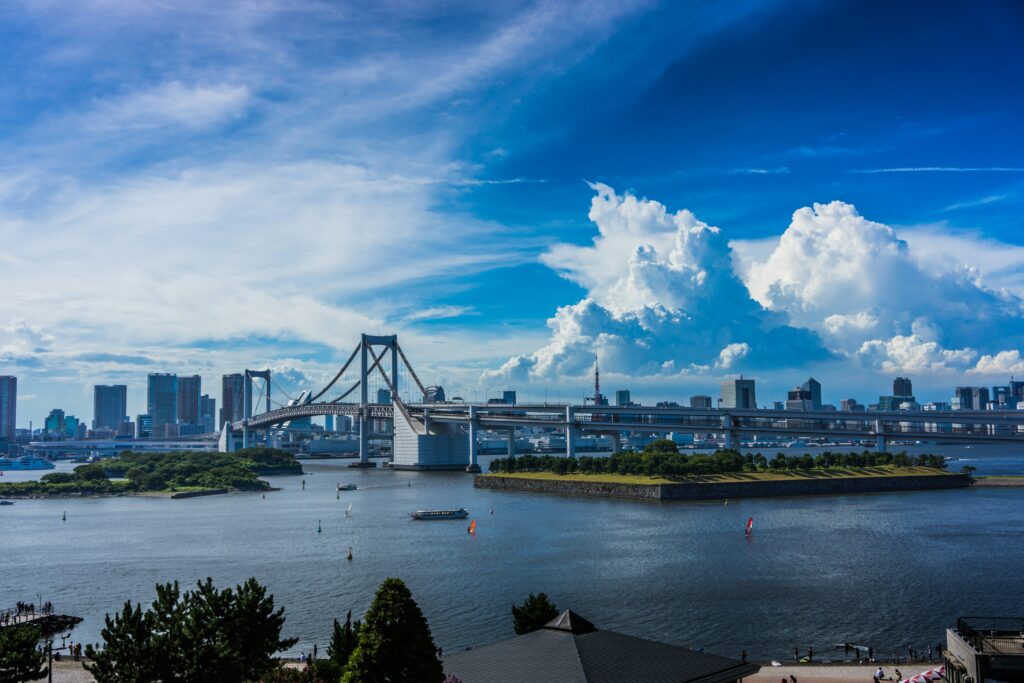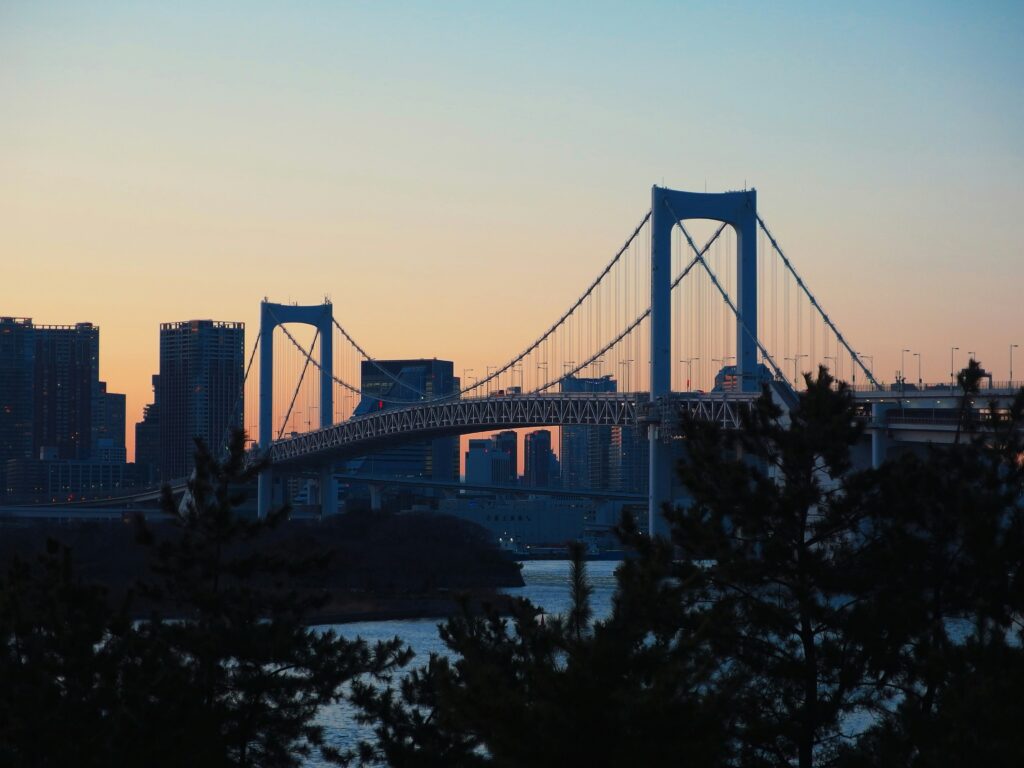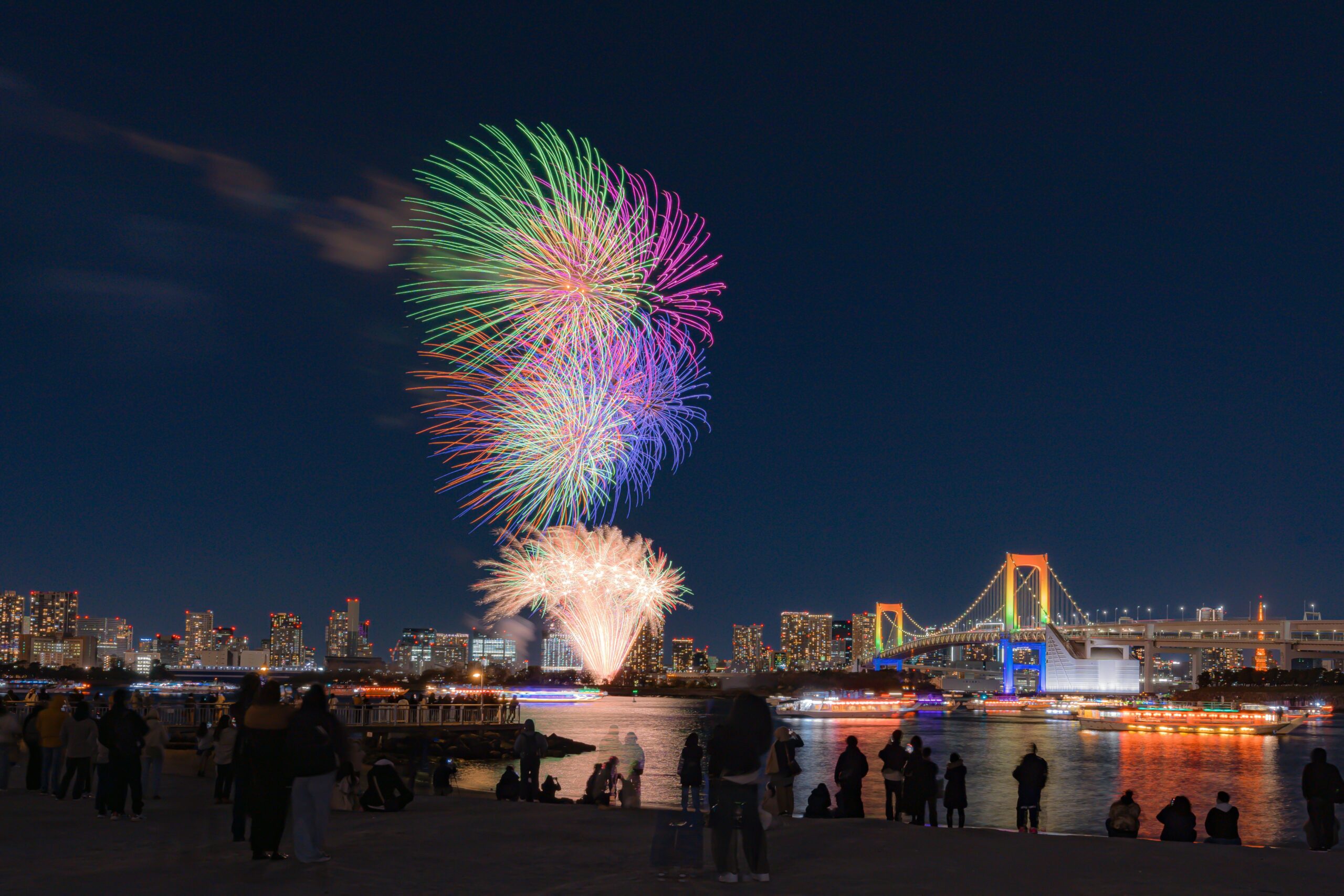It had been just over six months since Jonas had started living alone in Tokyo. One humid morning, he suddenly realized something: his breathing was growing shallower day by day, as if the rhythm of life was shrinking to match the endless calendar on his phone. He found himself missing the open skies and unhurried hours of Berlin, the city he’d left behind in Germany.
What stirred this awareness was a casual remark from a colleague during lunch—an anime enthusiast who brought it up almost absentmindedly.

“Have you ever been to Odaiba? There’s a giant Gundam there, and a really cool science museum.”
Odaiba. To Jonas, it sounded like a chaotic pocket of Japanese pop culture—bright, noisy, maybe even overwhelming. He’d never been drawn to anime in particular. But the mention of technology, art, and science sparked something. Later that night, he searched for images online—and a photo of the Rainbow Bridge at night quietly stirred something inside him.
Sea breeze. The glow of the bridge. A space where urban light meets the water’s surface.
“I need to breathe different air,” he thought.
That weekend, he decided to go.

The summer heat in Tokyo was stifling. But as Jonas transferred to the Yurikamome Line at Shimbashi and the train curved toward the bay, the view of sky and sea outside the window seemed to cool something inside him.
His first stop was the Miraikan – the National Museum of Emerging Science and Innovation. Stepping into the sleek, glass-walled building, he was greeted by a six-meter-wide globe suspended midair. Its surface shimmered with LED lights, animating cloud patterns and ocean currents in real time. Jonas stood still for a while, mesmerized. His home country, Tokyo—they were both there, on that sphere. Being away from the usual towers of concrete allowed his thoughts to stretch upward, outward, free.
Next, he visited teamLab Borderless, a world where art and technology melt together. Light moved with him from room to room. Walls morphed and responded. Sound guided him forward. There were no borders, no frames—just seamless flow. Unlike any art he had ever known, this was immersive, enveloping. It didn’t ask for interpretation; it simply offered a gentle presence.
By afternoon, hunger led Jonas to a quiet café near the water. The wooden façade was simple, its white curtains swaying gently in the breeze. Through the glass, he could see the sea glimmering under the sun. Inside, soft jazz played over warm wooden interiors and green houseplants added a gentle calm.
The dish that caught his eye was a set of chilled udon noodles and tempura. The translucent noodles shimmered beside crisp golden tempura—shrimp and eggplant, freshly fried. One slurp, and a subtle broth and refreshing texture washed through his body, as if summer fatigue had been gently lifted. There was no heaviness, no excess—just the honest flavor of ingredients.
For dessert, he ordered matcha shaved ice. A mountain of delicate ice, drizzled with deep green matcha syrup and condensed milk, topped with glossy red beans and soft rice dumplings. The first spoonful melted instantly on his tongue.
“So this is what summer in Japan tastes like,” he thought, smiling to himself.

In the late afternoon, he wandered into Odaiba Seaside Park. Though the beach was artificial, the sound of waves was soothing. It was surprisingly quiet for a place nestled among office towers. Children’s laughter, soft conversations among couples—it all blended into the background, as Jonas sat on a bench, staring out at the water.
A man sat down beside him. Tan skin, a beige linen shirt, calm eyes.
“Where are you from?” he asked in a gentle tone.
His name was Matsui. Nearly 40, he had worked in advertising in Tokyo for most of his life. But now, he said, he was reevaluating his path—considering going independent.
“Odaiba used to feel like an amusement park,” Matsui said. “But now… it feels like a space for thinking.”
A space for thinking. The phrase echoed inside Jonas.
“There’s too much information in the city,” Matsui continued. “But here, it’s different. Between the sky and the water, there’s a kind of silence that doesn’t need words.”
He wasn’t chasing anything, Jonas realized. He was listening. Still. Present. And for a moment, Jonas saw himself in him.
As the sun began to sink, Jonas made his way to the Rainbow Bridge pedestrian walkway. The path beneath the bridge offered cool ocean winds and a stunning view of dusk unfolding. The sky shifted from orange to deep indigo, as city lights blinked on one by one.

Far in the distance, the Tokyo Tower shimmered faintly. The bridge lights swayed across the water’s surface. Urban and ocean, artificial and natural—everything intersected.
Jonas felt something quiet open inside him.
“If I hadn’t traveled, I wouldn’t have seen this view. I wouldn’t have felt this wind. I wouldn’t have had that conversation.”
And then it struck him—that here, in this space where steel met tide, thinking and feeling could exist side by side, without distance.
It hadn’t been a dramatic weekend. No grand revelations, no life-altering decisions. But something had quietly shifted within him.
He realized he didn’t travel in order to think.
He traveled to give his thinking room to breathe.
And that, perhaps, was exactly what he needed most.
Something New Travel

